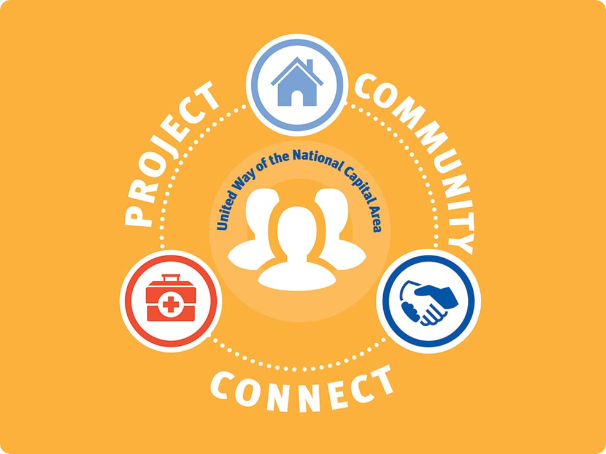Home » What We Do » Our Programs » Economic Opportunity » Project Community Connect
About
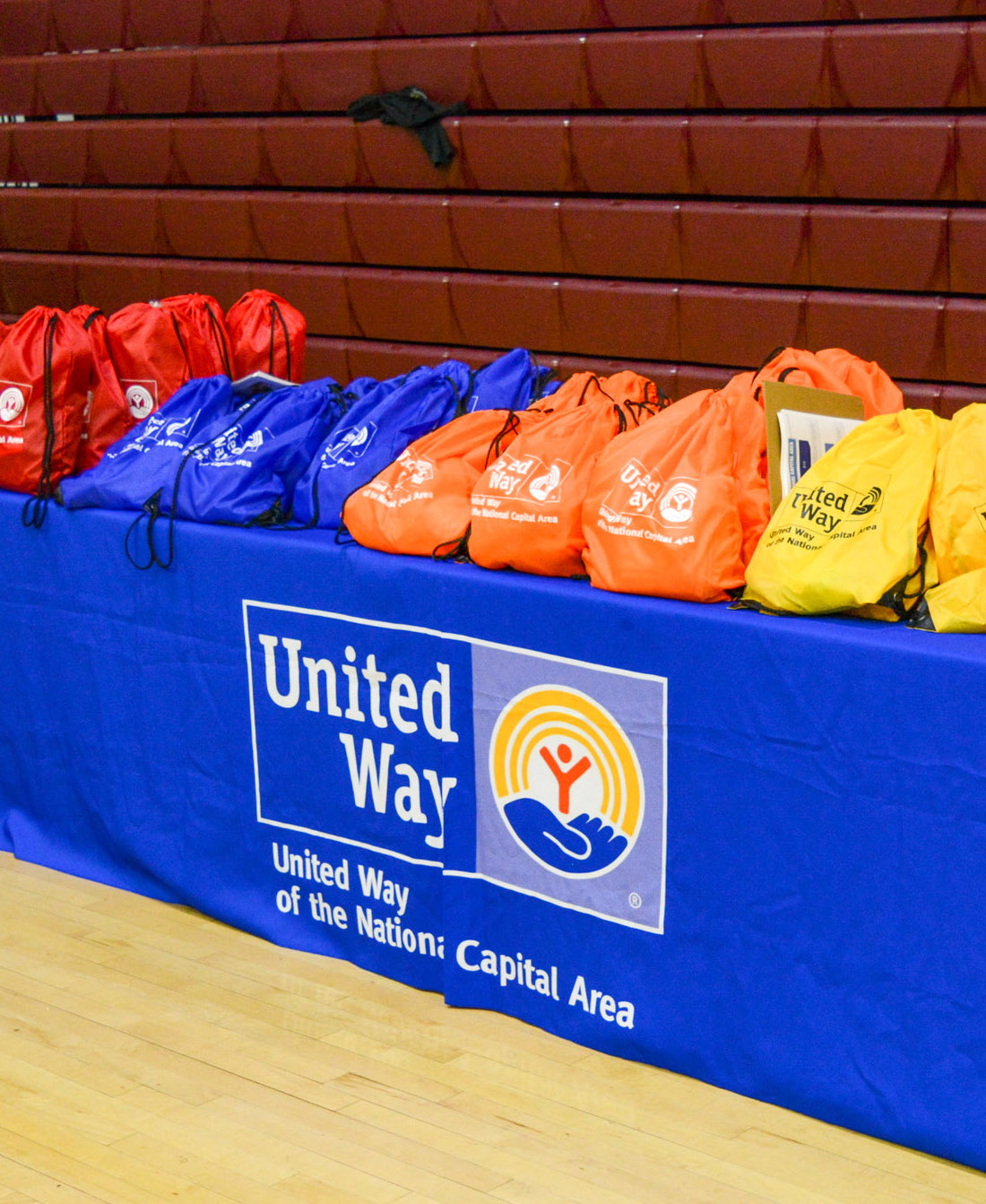
About Us
United Way NCA’s annual Project Community Connect focuses on achieving equity for all of our community members, regardless of race, gender, income and ability. The event will be held in October 2024, providing essential services to those at risk of or experiencing homelessness, as well as the region’s ALICE (Asset Limited, Income Constrained, Employed) population. For those interested in supporting this year’s Project Community Connect by becoming a sponsor, please contact United Way NCA’s Corporate Engagement Team at CSR@uwnca.org.
Who is ALICE?
ALICE (Asset Limited, Income Constrained, Employed) households earn above the Federal Poverty Level, yet they are not eligible for assistance and can’t afford the basic household necessities, including housing, child care, food, transportation, health care and a basic smartphone plan. Project Community Connect brings much-needed resources to individuals and families across the region through in-person and virtual workshops aimed toward the ALICE population, focusing on job opportunities, financial stability, health and more.
What Does Project Community Connect Involve?
United Way of the National Capital Area held three resource fairs for Project Community Connect in October 2023. Over these three events, we partnered with 40 organizations and served 331 participants, connecting them with much-needed resources, including health care services, rent and utility assistance, food security, workforce development and more.
Mission
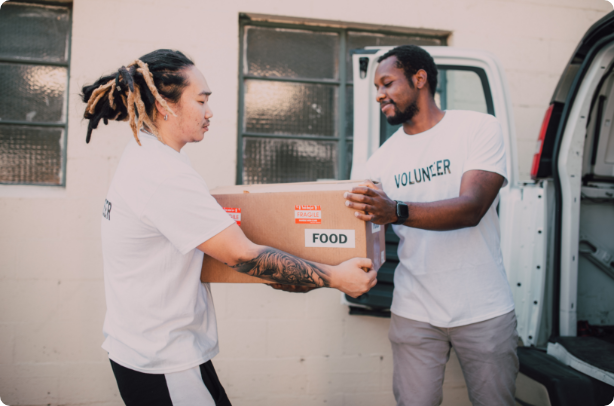
Our Mission
The mission of Project Community Connect is to build community, shift mindsets around homelessness through personal experience and connection, and provide critical resources to ALICE individuals and families in Washington, DC and surrounding counties in Maryland and Northern Virginia. See our 2023 PCC impact here.
Impact


The ALICE (Asset Limited, Income Constrained, Employed) population represents more than 500,000 low- and moderate-income households in our region that earn more than the Federal Poverty Level but less than the basic cost of living for the county/state in which they live. United Way NCA’s ALICE Lives Here initiative aims to reduce disparities in the areas of health, education and economic opportunity and improve outcomes for individuals and families in the National Capital Area.
With investments from generous supporters like yourself, United Way NCA can continue their efforts to assist ALICE in Loudoun and throughout the region. That means efforts such as supporting food pantries at Sterling Middle School and Park View High School. These pantries provide more than just groceries, but also other household and hygiene products. It also means volunteer opportunities like partnering with LEF’s Backpack Coalition to pack nearly 1,000 weekend meal kits to be distributed to those in need at 28 Loudoun County schools. The funds also allow United Way NCA to continually assess the needs of the community to identify where resources are needed the most in the region.
Get Involved

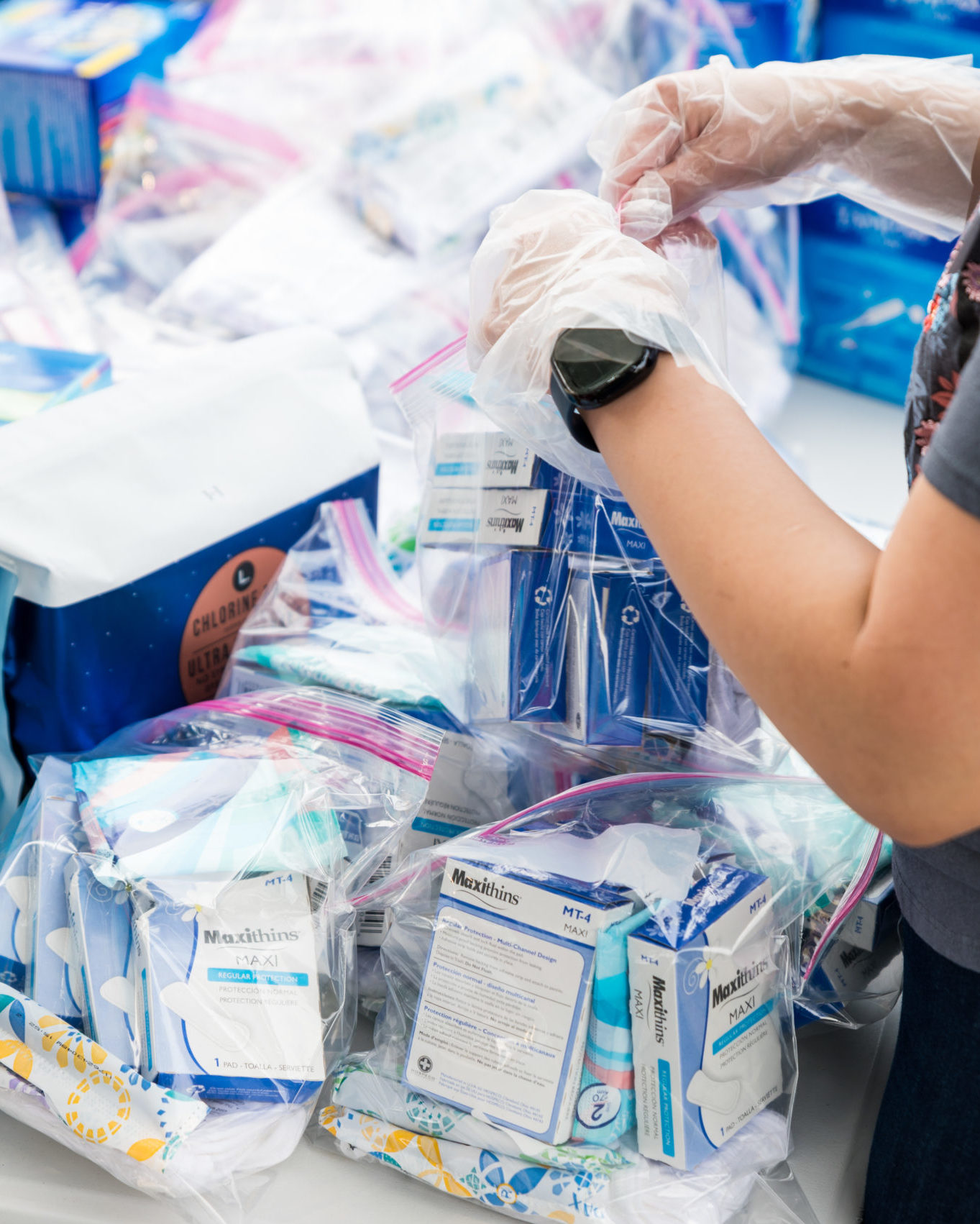
Get Involved
You can make monetary donations for initiatives like Project Community Connect here:
Your organization can sponsor Project Community Connect by contacting us below.
Become a United Way NCA volunteer to support initiatives like Project Community Connect in helping those experiencing homelessness and underserved populations around the DC area:
At this year’s PCC events, we aim to distributed over 1,600 essential need kits to individuals and families attending our service fairs across the region. Help us reach more people by purchasing items off our wish list.
What Participants Experience
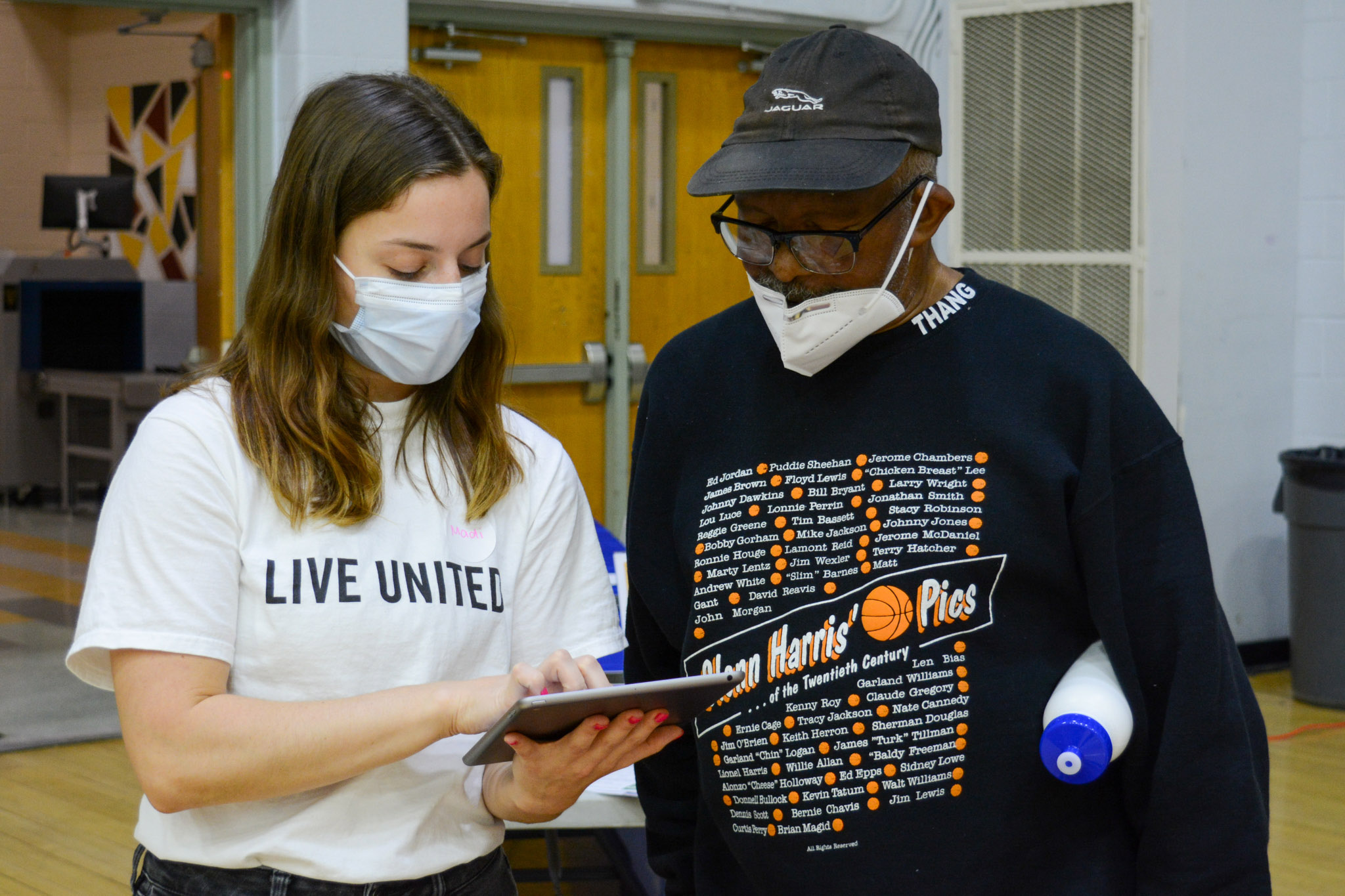
What Participants Experience
When Tamra Holmes came to Project Community Connect in 2018, she desperately needed assistance breaking her lease and reducing the increasing charges from her landlord. Within the year of receiving assistance, Holmes found a new apartment and returned to Project Community Connect in 2019 as a volunteer.
“Nobody in a homeless situation should be looked down upon, or judged or made to feel bad,” shares Holmes.
At the 2023 PCC event, United Way NCA connected the ALICE population with vital resources, and also provided kits full of hygiene products, healthy snacks, winter gear and more to those at risk of or experiencing homelessness.
Schedule of Events

PCC 2024 Schedule
Oct. 16: Matthews Memorial Baptist Church (Washington, DC) from 10:00am to 2:00pm
Oct. 23: Montgomery College East County Education Center (Silver Spring, MD) from 10:00am to 2:00pm
Nov. 2: Northern Virginia Community College Loudoun Campus (Loudoun, VA) from 10:00am to 2:00pm
Partner Organizations
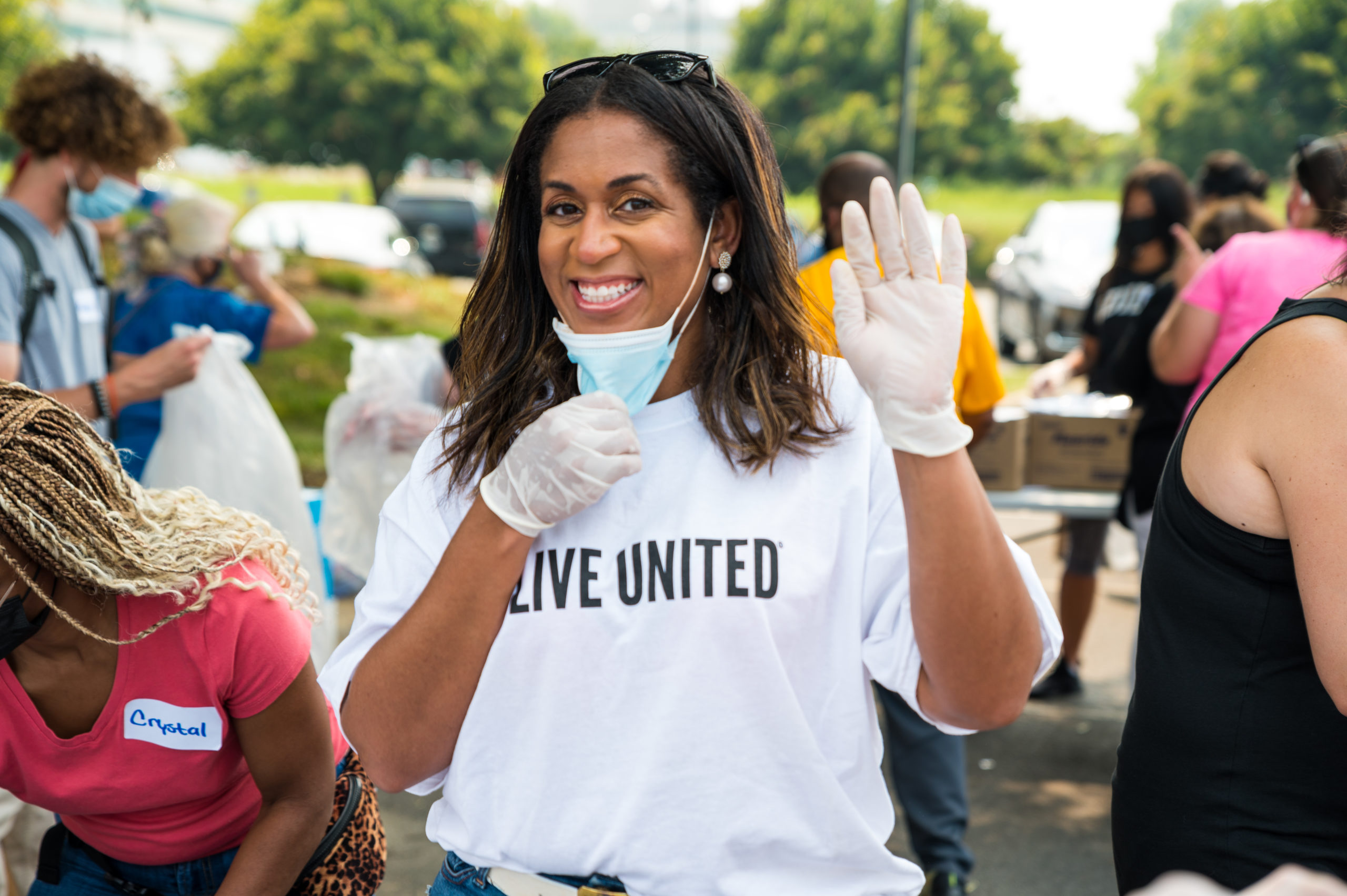
2024 Partner Organizations
Project Community Connect is made possible with the generous support of our community partners. If your organization is interested in partnering with United Way NCA for Project Community Connect, please contact us at pcc@uwnca.org.
Sponsors
2024 Sponsors
Project Community Connect is made possible with the generous support of our sponsors. If your organization is interested in supporting Project Community Connect, please contact United Way NCA’s Corporate Engagement Team at CSR@uwnca.org.
About Us
United Way NCA’s annual Project Community Connect focuses on achieving equity for all of our community members, regardless of race, gender, income and ability. The event will be held in October 2024, providing essential services to those at risk of or experiencing homelessness, as well as the region’s ALICE (Asset Limited, Income Constrained, Employed) population. For those interested in supporting this year’s Project Community Connect by becoming a sponsor, please contact United Way NCA’s Corporate Engagement Team at CSR@uwnca.org.
Who is ALICE?
ALICE (Asset Limited, Income Constrained, Employed) households earn above the Federal Poverty Level, yet they are not eligible for assistance and can’t afford the basic household necessities, including housing, child care, food, transportation, health care and a basic smartphone plan. Project Community Connect brings much-needed resources to individuals and families across the region through in-person and virtual workshops aimed toward the ALICE population, focusing on job opportunities, financial stability, health and more.
What Does Project Community Connect Involve?
United Way of the National Capital Area held three resource fairs for Project Community Connect in October 2023. Over these three events, we partnered with 40 organizations and served 331 participants, connecting them with much-needed resources, including health care services, rent and utility assistance, food security, workforce development and more.

Our Mission
The mission of Project Community Connect is to build community, shift mindsets around homelessness through personal experience and connection, and provide critical resources to ALICE individuals and families in Washington, DC and surrounding counties in Maryland and Northern Virginia. See our 2023 PCC impact here.
The ALICE (Asset Limited, Income Constrained, Employed) population represents more than 500,000 low- and moderate-income households in our region that earn more than the Federal Poverty Level but less than the basic cost of living for the county/state in which they live. United Way NCA’s ALICE Lives Here initiative aims to reduce disparities in the areas of health, education and economic opportunity and improve outcomes for individuals and families in the National Capital Area.
With investments from generous supporters like yourself, United Way NCA can continue their efforts to assist ALICE in Loudoun and throughout the region. That means efforts such as supporting food pantries at Sterling Middle School and Park View High School. These pantries provide more than just groceries, but also other household and hygiene products. It also means volunteer opportunities like partnering with LEF’s Backpack Coalition to pack nearly 1,000 weekend meal kits to be distributed to those in need at 28 Loudoun County schools. The funds also allow United Way NCA to continually assess the needs of the community to identify where resources are needed the most in the region.

Get Involved
You can make monetary donations for initiatives like Project Community Connect here:
Your organization can sponsor Project Community Connect by contacting us below.
Become a United Way NCA volunteer to support initiatives like Project Community Connect in helping those experiencing homelessness and underserved populations around the DC area:
At this year’s PCC events, we aim to distributed over 1,600 essential need kits to individuals and families attending our service fairs across the region. Help us reach more people by purchasing items off our wish list.

What Participants Experience
When Tamra Holmes came to Project Community Connect in 2018, she desperately needed assistance breaking her lease and reducing the increasing charges from her landlord. Within the year of receiving assistance, Holmes found a new apartment and returned to Project Community Connect in 2019 as a volunteer.
“Nobody in a homeless situation should be looked down upon, or judged or made to feel bad,” shares Holmes.
At the 2023 PCC event, United Way NCA connected the ALICE population with vital resources, and also provided kits full of hygiene products, healthy snacks, winter gear and more to those at risk of or experiencing homelessness.
PCC 2024 Schedule
Oct. 16: Matthews Memorial Baptist Church (Washington, DC) from 10:00am to 2:00pm
Oct. 23: Montgomery College East County Education Center (Silver Spring, MD) from 10:00am to 2:00pm
Nov. 2: Northern Virginia Community College Loudoun Campus (Loudoun, VA) from 10:00am to 2:00pm

2024 Partner Organizations
Project Community Connect is made possible with the generous support of our community partners. If your organization is interested in partnering with United Way NCA for Project Community Connect, please contact us at pcc@uwnca.org.

2024 Sponsors
Project Community Connect is made possible with the generous support of our sponsors. If your organization is interested in supporting Project Community Connect, please contact United Way NCA’s Corporate Engagement Team at CSR@uwnca.org.

